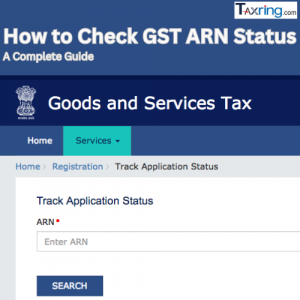-1920x700.png)
TDS and TCS Under GST: A Comprehensive Guide for Businesses
Understanding TDS and TCS Under GST
What is TDS Under GST?
Tax Deducted at Source (TDS) under GST is a mechanism where tax is deducted at the point of payment for certain types of transactions. The responsibility for TDS falls on entities making specified payments such as salaries, commissions, professional fees, and rent.
-
Rate of TDS: The standard TDS rate is 2%, comprising 1% CGST and 1% SGST, or 2% IGST for inter-state transactions.
-
Who Must Deduct TDS?: Government departments, local authorities, and certain public sector undertakings are mandated to deduct TDS.
What is TCS Under GST?
Tax Collected at Source (TCS) is collected by the seller at the point of sale for specific transactions. It primarily applies to e-commerce operators and sellers of goods like alcohol, scrap, and minerals.
-
Rate of TCS: The TCS rate varies from 0.1% to 5%, depending on the nature of the goods or services sold.
-
Who Must Collect TCS?: E-commerce platforms and sellers of specified goods are responsible for TCS.
Key Differences Between TDS and TCS Under GST
-
Timing of Collection:
-
TDS: Deducted at the time of payment.
-
TCS: Collected at the time of sale.
-
Responsible Party:
-
TDS: Deducted by the payer (e.g., government departments).
- TCS: Collected by the seller or e-commerce operator.
- Applicability:
- TDS: Applied to payments for services, professional fees, rent, etc.
- TCS: Applied to sales of certain goods and services, particularly through e-commerce.
Benefits of TDS and TCS Under GST
1. Enhanced Compliance: TDS and TCS mechanisms ensure that taxes are collected at multiple stages, reducing the risk of tax evasion and increasing overall compliance.
2. Seamless Credit Utilization: For deductees, TDS is automatically reflected in their electronic ledger, allowing for easy credit utilization for other tax payments.
3. Transparent Tax Administration: Both TDS and TCS contribute to a more transparent tax administration by ensuring that taxes are collected and reported systematically.
4. Strengthened Regulation: TDS helps integrate unorganized sectors into the formal economy, while TCS regulates online transactions, ensuring adherence to tax norms.
How to Apply TDS Online Under GST
Applying TDS online is a straightforward process:
-
Register for GST: Ensure you are registered for GST and obtain a GST Identification Number (GSTIN).
-
Deduct TDS: Calculate and deduct TDS based on the payment type and applicable rate.
-
Deposit TDS: Remit the deducted TDS to the government using the GST portal.
-
File TDS Return: Submit a quarterly TDS return, detailing the amount deducted and deposited.
TDS Payment Due Date: TDS payments must be deposited by the 10th of the following month. For example, TDS deducted in March must be paid by April 10.
How to Apply TCS Online Under GST
Applying TCS online involves:
- GST Registration: Register for GST and obtain a GSTIN if you are an e-commerce operator or seller.
- Collect TCS: Collect TCS on sales as per the applicable rate.
- Deposit TCS: Deposit the collected TCS with the government through the GST portal.
- File TCS Return: File the TCS return, usually through GSTR-8, reporting the TCS collected.
TCS Payment Due Date: TCS must be deposited by the 10th of the following month. For example, TCS collected in March should be paid by April 10.
Impact of TDS and TCS on Businesses
1. Government Contractors: TDS provisions enhance compliance among civil contractors by ensuring tax is collected at the source, promoting transparency and reducing evasion.
2. E-commerce Operators: TCS impacts online sellers by requiring them to collect and remit tax on transactions, necessitating adjustments in financial systems and registration in each state of operation.
3. Small Businesses: Small suppliers and contractors need to adapt to GST compliance norms, ensuring they meet registration requirements and utilize credits effectively.
TDS and TCS under GST apply when the total service value or sales amount exceeds certain thresholds. TCS applies to e-commerce operators, while TDS applies to government entities and designated individuals in the supply chain.
The TDS rate under GST is 2% (1% CGST + 1% SGST or 2% IGST). Government departments and specific entities deduct this amount for compliance when payments exceed set limits.
The TDS amount is credited to the deductee's electronic cash ledger, reflecting in GSTR-7. The deductee cannot claim a refund from the deductor but may apply for a refund under GST provisions.
TCS is exempt for petroleum products, diesel, and alcoholic beverages. These exemptions simplify the tax collection process for specific sectors.
E-commerce operators must collect TCS at 1% on the net taxable value of goods or services when total sales exceed ₹2.5 lakhs in a financial year.
E-commerce platforms like Amazon and Flipkart collect 1% TCS on transactions conducted through their sites, ensuring tax compliance.
The TCS collected by the operator is credited to the supplier’s electronic cash ledger, allowing the supplier to use this credit for tax payments.
If discrepancies in supply values are found, the supplier must pay the additional output tax along with interest if the issue isn’t resolved in time.
As of July 10, 2024, CGST Notification No. 12/2024 updated the GSTR-7 format to include invoice-level reporting, detailing TDS amounts, transaction values, and applicable taxes.
Conclusion
Understanding and complying with TDS and TCS under GST is crucial for businesses to ensure smooth operations and avoid penalties. By following the outlined processes and deadlines, you can effectively manage your tax obligations. For expert assistance and seamless GST compliance, Taxring is here to support you!
Related article : How to check your TDS Refund status?




